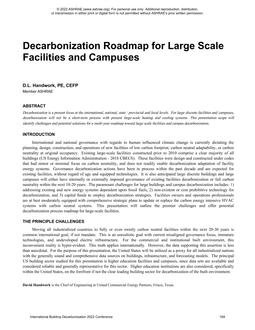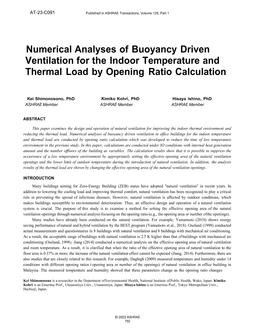
Advances in Microscale Heat and Mass Transfer to Enable a New Generation of Thermally Activated Sorption Heat Pumps
An overview of alternatives to vapor-compression heat pumps, driven by the near-to-long term phase-out of conventional refrigerants, is provided in this paper, followed by a discussion of advances in microscale heat and mass transfer that are leading to the development of a new generation of modular, versatile, small-capacity sorption heat pumps. It is pointed out that absorption, which has been a mature technology for over a century at the large capacities, can also be applied at the smaller scales, in residential and commercial installations in small envelopes through the use of these innovations in microscale heat and mass exchange. Ammonia-water is the working fluid of choice for such compact installations due to its favorable thermodynamic and transport properties, especially the low freezing point and low specific volume of ammonia compared to water vapor. Both falling-film and internal forced-convective flow configurations are presented as viable options for compact absorption systems. Compactness and integration of multiple functions into single components also yields considerable reduction in fluid inventory requirements, connecting plumbing, shipping and installation of these units. Applications include air-conditioning, space heating, and water heating, driven by natural gas, waste heat from collocated processes, and solar thermal energy. Standalone units as well as modular thermal hubs distributed around buildings are facilitated by the availability of these compact heat pumps. The progress in component design, fabrication, controls, and system integration required to take these preliminary demonstration units to full-fledged commercial systems and present viable options to the dominant vapor-compression systems is also discussed.
Product Details
- Published:
- 2012
- Number of Pages:
- 18
- File Size:
- 1 file , 2.6 MB
- Product Code(s):
- D-ANRC12-05
- Note:
- This product is unavailable in Russia, Belarus


